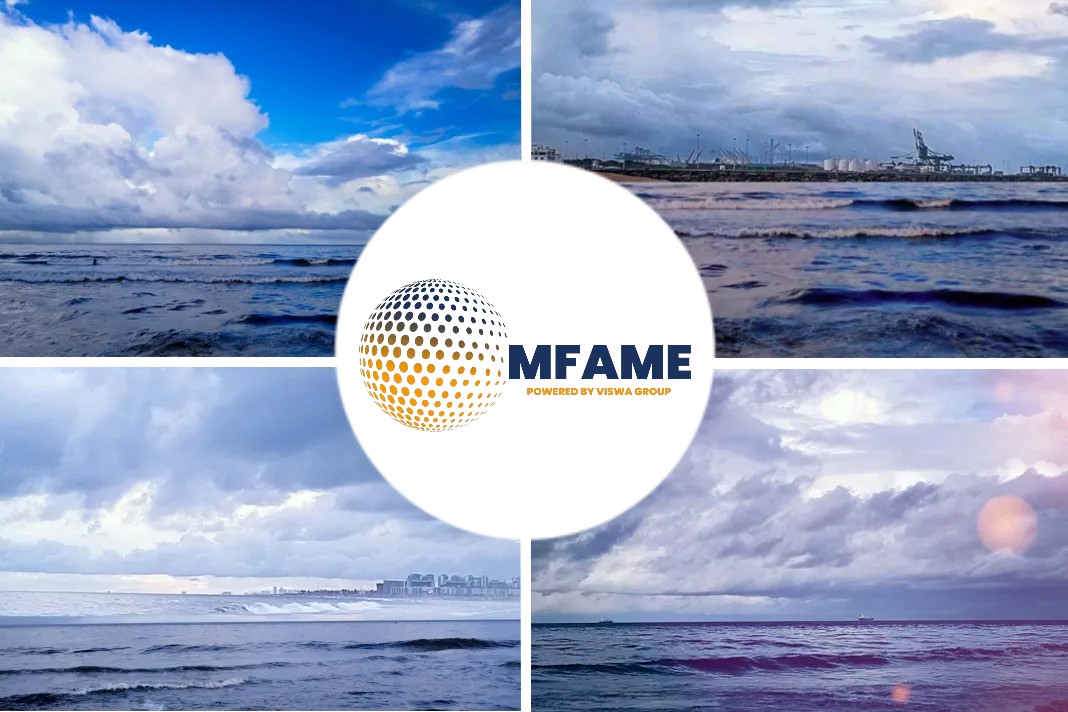Bigger version coming soon
Roland Decorvet, chairman of Mercy Ships Switzerland, refers to the ship as a “floating village” that reaches “the forgotten, the poorest of the poor,” and requires thousands of volunteers and millions of dollars each year. Decorvet says an even bigger USD 130 million version of the ship is coming soon.
Mercy Ships is an international charity. Mercy Ships currently operates the largest non-governmental hospital ship in the world, providing humanitarian aid like free health care, community development projects, community health education, mental health programs, agriculture projects, and palliative care for terminally ill patients.
Focus on African countries
Mercy Ships has operated in more than 57 developing nations and 18 developed nations around the world, with a current focus on the countries of Africa.
The organization has its International Support Center (ISC) in Garden Valley, Texas. Mercy Ships also has 16 national resource offices in countries that include Spain, Britain, Canada, Germany, Switzerland, the Netherlands, South Africa, Australia, France, Korea, Denmark, Belgium, New Zealand, Sweden and Norway.
A major inspiration for Mercy Ships president and founder Don Stephens was the work of the international hospital ship SS Hope. Stephens’ research showed that 95 of the 100 largest cities in the world were port cities. Therefore, a hospital ship could deliver healthcare very efficiently to large numbers of people. The birth of Stephens’ disabled son, John Paul, also inspired him to move forward with his vision of a floating hospital. A visit with Mother Teresa in Calcutta, India, further deepened his commitment to serving the world’s neediest people
Missions
The organization treats all patients free of charge, and without regard to their religion, race or gender.
Mercy Ships vessels have visited 594 ports, covering 56 developing nations. Its volunteers have provided services and materials in developing countries valued at over $1.53 billion. Mercy Ships has delivered services to more than 2.71 million direct beneficiaries and Mercy Ships volunteers have performed more than 95,000 free operations, such as cleft lip and palate, cataract removal, straightening of crossed eyes, and orthopedic and facial reconstruction. They have:
- Performed 448,000 dental procedures for over 175,000 dental patients.
- Trained more than 6,315 local professionals (including surgeons), who have in turn trained many others
- Trained over 42,250 local professionals in their area of expertise (anesthesiology, midwifery, sterilization, orthopedic and reconstructive surgery, leadership)
- Taught over 239,000 local people in basic healthcare.
- Completed over 1,110 infrastructure development and agriculture projects
Mercy Ships is a Better Business Bureau accredited charity. Mercy Ships has built a broad base of financial support, beginning with donations from the public and from crew members. Medical companies donate pharmaceuticals, equipment and supplies to Mercy Ships. Corporations also make in-kind donations of materials such as fuel, food and building supplies. In addition, governments that work with Mercy Ships typically waive or cover port fees and associated costs for the ship to dock.
Medical capabilities
Medical personnel on the Africa Mercy provide surgeries and healthcare to treat a wide range of problems, including cleft lip and palate, cataract, crossed eyes (strabismus), bowed legs (genu varum), burns and burn scars, dental problems and obstetric fistula repair for injuries sustained during childbirth. Many of these ailments are extremely severe because patients have had little prior access to medical care. In addition, people with disfiguring medical conditions have often been shunned by their communities, so medical treatment from Mercy Ships can also help relieve the stigma and isolation that they have experienced.
- The lower deck of the Africa Mercy is equipped with five operating theaters, 82-bed recovery wards, a CT scanner, an X-ray machine and a laboratory.
- During its two field services to Toamasina, Madagascar between October 2014 to June 2016, the volunteer crew of the Africa Mercy performed 2,951 free surgeries, had 137 participants in the Medical Capacity Building Mentoring program which included surgeons, doctor and nurse anesthetists, lab and sterile technicians, Ward, OR and ER nurses and a dentist.
- Mercy Ships Medical Capacity Building courses taught 1,882 health care professionals participants in internationally recognized training that included SAFE Obstetric Anesthesia, SAFE Pediatric Anesthesia, WHO Surgical Safety Checklist, Ponseti Method, Essential Surgical Skills, Essential Pain Management, Glaucoma, Mental Health, Dental, Biomedical and Primary Trauma Care.
- The dental clinics provided 49,577 free dental care procedures for tooth decay and infections, provided clinical dental hygiene services on 2,277 patients, provided dentures for 543 patients, for a total of 12,688 unique dental patients.
- In addition, Mercy Ships increased health care delivery systems by renovating in-country hospital facilities.
- On the upper decks of the Africa Mercy, the ship has 126 cabins that provide accommodations for more than 400 crew, including families, couples and individuals.
- The ship is equipped with a day care center, an accredited academy for all grades through senior year of high school, a library, a launderette, a shop for groceries and sundries, a restaurant, a gymnasium, and a donated Starbucks cafe.
- A fleet of 28 vehicles travels with the ship, for use in Mercy Ships land-based operations.
Did you subscribe to our daily newsletter?
It’s Free! Click here to Subscribe!






















